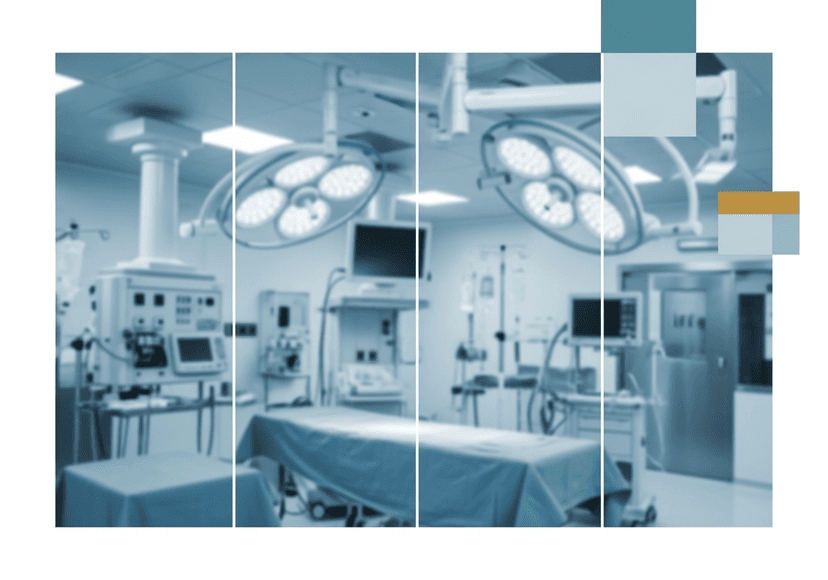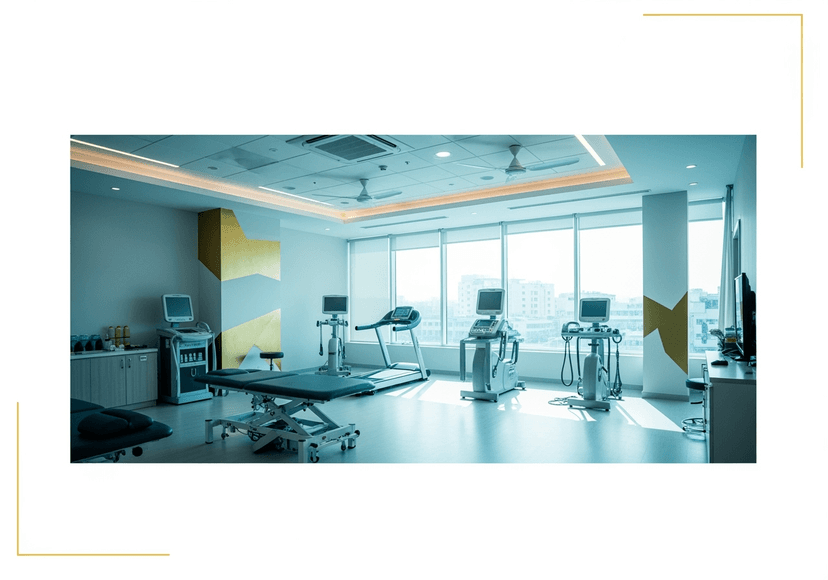
Benefits, Risks, and Complications of Laparoscopic Hernia Surgery
03 May, 2023
Laparoscopic hernia surgery is a minimally invasive surgical procedure used to repair a hernia. This type of surgery involves making small incisions in the abdominal wall and using specialized surgical instruments and a camera to view and repair the hernia from inside the abdomen.
There are several benefits to laparoscopic hernia surgery compared to traditional open surgery:
Most popular procedures in India
1. Faster recovery time: Laparoscopic surgery is less invasive than open surgery, so patients typically experience less pain, less scarring, and a faster recovery time. Patients are often able to return to their normal activities within a few weeks.
2. Reduced risk of complications: Laparoscopic hernia surgery has a lower risk of complications such as infection, bleeding, and injury to surrounding tissue.
Wellness Treatments
Give yourself the time to relax
Lowest Prices Guaranteed!

Lowest Prices Guaranteed!
3. Better cosmetic outcomes: Since laparoscopic surgery involves smaller incisions, patients may have less scarring and a more cosmetically appealing result.
4. Shorter hospital stay: Patients who undergo laparoscopic hernia surgery typically have a shorter hospital stay than those who have open surgery, which can help reduce healthcare costs.
5. Lower recurrence rate: Studies have shown that laparoscopic hernia surgery has a lower recurrence rate compared to open surgery, which means there is a lower chance that the hernia will come back after the surgery.
6. Less postoperative pain: The smaller incisions and reduced trauma to the surrounding tissue during laparoscopic hernia surgery typically result in less postoperative pain and discomfort for patients.
7. Quicker return to normal activities: Due to the minimally invasive nature of laparoscopic hernia surgery, patients are often able to return to normal activities more quickly than with open surgery.
8. Improved visualization: Laparoscopic surgery allows for improved visualization of the surgical site due to the use of a camera, which can help the surgeon to identify any additional hernias or other conditions that may need to be addressed.
9. Minimal scarring: Laparoscopic hernia surgery involves making small incisions, which results in minimal scarring and a more cosmetically pleasing result.
10. Lower risk of complications in obese patients: Studies have shown that laparoscopic hernia surgery may be a safer option for obese patients, as it is associated with a lower risk of complications compared to open surgery.
Overall, laparoscopic hernia surgery offers numerous benefits compared to traditional open surgery. However, it is important to discuss the risks and benefits with your doctor to determine if this surgery is the best option for your individual needs.
While laparoscopic hernia surgery is generally considered safe and effective, as with any surgical procedure, there are risks and potential complications. Some of the risks and complications associated with laparoscopic hernia surgery include:
- Bleeding: There is a risk of bleeding during and after surgery, which can result in the need for blood transfusions or additional surgery to control the bleeding.
- Infection: Any surgery carries a risk of infection, and laparoscopic hernia surgery is no exception. Infection can occur at the incision sites or inside the abdomen and can be treated with antibiotics.
- Injury to organs or tissues: During surgery, there is a risk of injury to nearby organs or tissues, such as the bowel, bladder, blood vessels, or nerves. These injuries can be serious and may require additional surgery to repair.
- Adverse reaction to anesthesia: Some patients may have an adverse reaction to anesthesia, which can result in complications such as breathing difficulties, allergic reactions, or cardiac arrest.
- Hernia recurrence: While laparoscopic hernia surgery is associated with a lower risk of hernia recurrence compared to open surgery, there is still a chance that the hernia may come back after surgery.
- Chronic pain: Some patients may experience chronic pain after surgery, which can be caused by nerve damage or scar tissue formation.
- Bowel obstruction: In rare cases, patients may develop a bowel obstruction after surgery, which can cause abdominal pain, nausea, vomiting, and constipation.
- Mesh-related complications: In some cases, patients may experience complications related to the mesh used to repair the hernia, such as mesh migration, infection, or rejection.
- Anesthesia-related complications: There is a risk of complications associated with the anesthesia used during laparoscopic hernia surgery, including allergic reactions, respiratory distress, or adverse reactions to medications.
- Blood clots: There is a risk of developing blood clots in the legs or lungs after surgery, which can be potentially life-threatening.
- Pneumothorax: In rare cases, the lung can be punctured during surgery, resulting in a collapsed lung.
- Difficulty urinating: Patients may experience difficulty urinating after surgery, which can be caused by swelling or irritation of the bladder or urethra.
- Surgical site complications: In some cases, patients may experience complications related to the surgical site, such as bleeding, infection, or delayed healing.
- Other medical complications: Patients with pre-existing medical conditions such as diabetes, heart disease, or lung disease may be at an increased risk of complications during and after surgery.
- Groin numbness or tingling: Patients may experience numbness or tingling in the groin area after surgery, which can be caused by nerve damage during the procedure.
- Allergic reaction to surgical materials: Some patients may develop an allergic reaction to the surgical materials used during the procedure, such as the mesh or suture materials.
- Pain or discomfort during sex: In some cases, patients may experience pain or discomfort during sexual activity after surgery, which can be caused by nerve damage, scar tissue formation, or mesh-related complications.
- Anesthesia-related cognitive dysfunction: Some patients may experience cognitive dysfunction or confusion after surgery, which can be caused by anesthesia-related factors.
- Incisional hernia: In rare cases, patients may develop an incisional hernia at the site of the laparoscopic incisions.
It is important to discuss your medical history and any potential risks or complications with your doctor before undergoing laparoscopic hernia surgery. Your doctor can help you understand the risks and benefits of the procedure and determine if it is the best option for you.
Related Blogs

Getting a Second Medical Opinion from Indian Doctors – 2025 Insights
Explore getting a second medical opinion from indian doctors –

Post-Surgery Recovery Tips for International Patients – 2025 Insights
Explore post-surgery recovery tips for international patients – 2025 insights

Best Countries for Affordable Healthcare in 2025 – 2025 Insights
Explore best countries for affordable healthcare in 2025 – 2025

A Guide to Indian Healthcare for Sri Lankan Patients – 2025 Insights
Explore a guide to indian healthcare for sri lankan patients

Heart Bypass Surgery in India: What International Patients Should Know – 2025 Insights
Explore heart bypass surgery in india: what international patients should

Best Physiotherapy Centers in India for Medical Tourists – 2025 Insights
Explore best physiotherapy centers in india for medical tourists –










